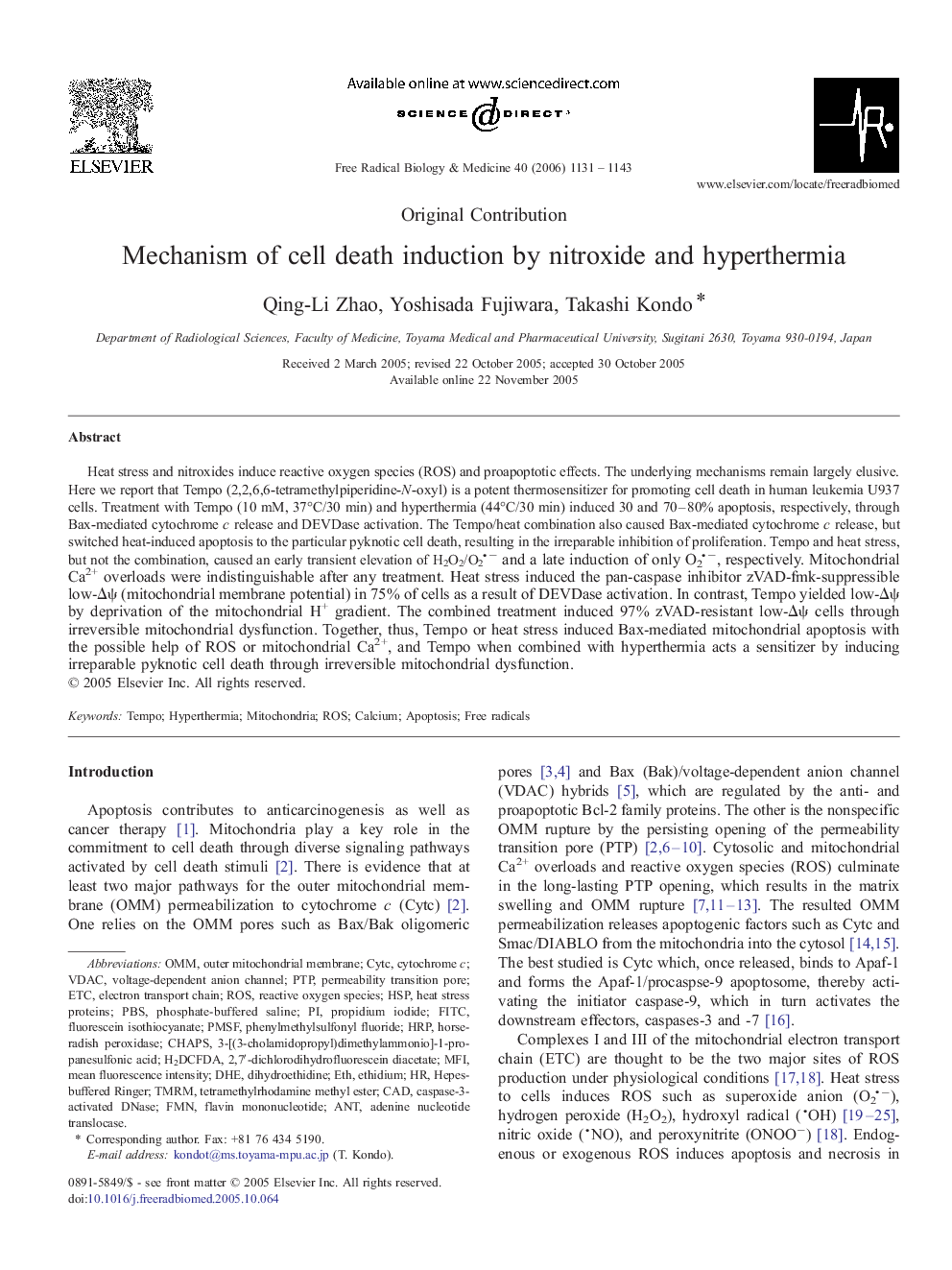| Article ID | Journal | Published Year | Pages | File Type |
|---|---|---|---|---|
| 1911961 | Free Radical Biology and Medicine | 2006 | 13 Pages |
Heat stress and nitroxides induce reactive oxygen species (ROS) and proapoptotic effects. The underlying mechanisms remain largely elusive. Here we report that Tempo (2,2,6,6-tetramethylpiperidine-N-oxyl) is a potent thermosensitizer for promoting cell death in human leukemia U937 cells. Treatment with Tempo (10 mM, 37°C/30 min) and hyperthermia (44°C/30 min) induced 30 and 70–80% apoptosis, respectively, through Bax-mediated cytochrome c release and DEVDase activation. The Tempo/heat combination also caused Bax-mediated cytochrome c release, but switched heat-induced apoptosis to the particular pyknotic cell death, resulting in the irreparable inhibition of proliferation. Tempo and heat stress, but not the combination, caused an early transient elevation of H2O2/O2− and a late induction of only O2−, respectively. Mitochondrial Ca2+ overloads were indistinguishable after any treatment. Heat stress induced the pan-caspase inhibitor zVAD-fmk-suppressible low-Δψ (mitochondrial membrane potential) in 75% of cells as a result of DEVDase activation. In contrast, Tempo yielded low-Δψ by deprivation of the mitochondrial H+ gradient. The combined treatment induced 97% zVAD-resistant low-Δψ cells through irreversible mitochondrial dysfunction. Together, thus, Tempo or heat stress induced Bax-mediated mitochondrial apoptosis with the possible help of ROS or mitochondrial Ca2+, and Tempo when combined with hyperthermia acts a sensitizer by inducing irreparable pyknotic cell death through irreversible mitochondrial dysfunction.
